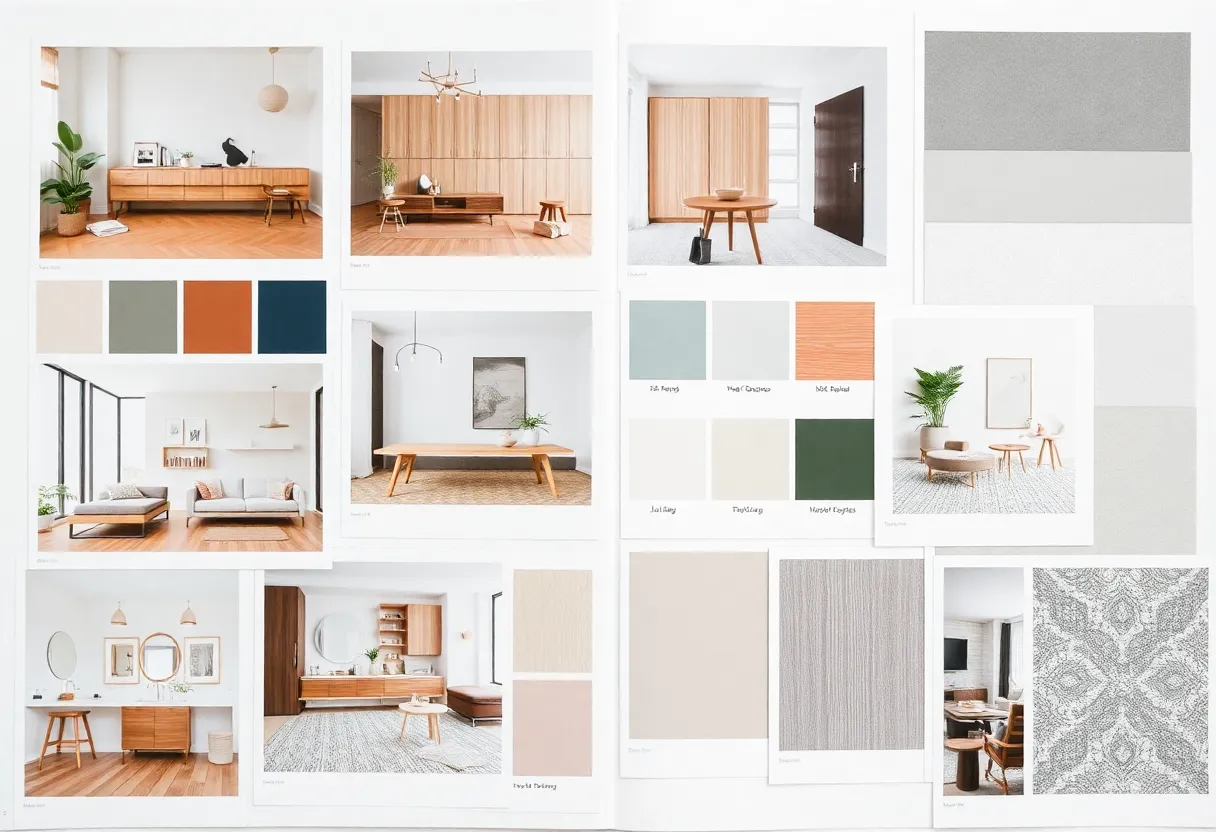How to Effectively Communicate Your Home Vision for Successful DIY Projects
Introduction
Clear communication of your home vision is vital for the success of any DIY project. Whether undertaking a simple renovation or a complex remodel, effectively expressing your ideas ensures alignment with involved parties, prevents misunderstandings, and sets a solid foundation for successful execution. This article presents a comprehensive guide on how to communicate your vision with precision, clarity, and confidence—driving your home improvement endeavors toward achievable, satisfying results.
Understanding the Importance of a Clear Vision
Why Clear Communication Matters
When initiating a DIY project, the clarity of your home vision directly impacts the project’s outcome. Without it, efforts can lead to costly errors, rework, or dissatisfaction. Well-communicated goals enable you and any collaborators to operate cohesively and efficiently.
The Impact of Vague Ideas
Vague or poorly expressed ideas often result in mismatched expectations. This can cause frustration, delays, and budget overruns. Precise articulation of your vision minimizes ambiguity and aligns all participants with your goals.
Step 1: Define Your Home Vision Clearly
Assess Your Needs and Preferences
The foundation of effective communication begins with a thorough understanding of what you want to achieve. Clarify your needs, preferences, and priorities for the space, considering style, functionality, and budget constraints.
Create a Vision Statement
Summarize your ideas into a succinct vision statement. Describe in clear terms what the final outcome should look like, feel like, and function like. This statement serves as the guiding light throughout your project.
Step 2: Gather Visual and Informational References
Use Visual Aids
Gather images, Pinterest boards, samples, or sketches. Visual references help translate your abstract ideas into concrete concepts. They serve as universal language, bridging gaps between imagination and execution.
Research Material and Design Options
Investigate available materials, colors, finishes, and techniques. Familiarity with options streamlines communication and ensures your vision is realistic and achievable.
Step 3: Document Your Vision Effectively
Develop Visual Presentations
Compile your references into a presentation or mood board. Include sketches or digital renderings if possible. Clear visual documentation enhances understanding and provides a common point of reference.
Write Detailed Descriptions
Succeed with visual aids by supplementing them with written explanations. Specify dimensions, materials, colors, and finishes. Be explicit to avoid assumptions or misinterpretations.
Step 4: Choose the Right Communication Tools
Select Appropriate Mediums
Utilize multiple communication channels—digital platforms, diagrams, written plans, or face-to-face discussions. Choose tools suited to the scope and complexity of your project.
Leverage Technology
Employ digital tools such as project management software, design apps, or shared cloud folders. These facilitate real-time updates, feedback, and version control — keeping everyone aligned.
Step 5: Engage and Collaborate Effectively
Communicate Expectations Clearly
Set explicit expectations regarding timelines, roles, budgets, and quality standards. Ensure all parties understand their responsibilities from the outset.
Encourage Feedback and Questions
Foster an environment where questioning and clarification are welcomed. This reduces misunderstandings and promotes a collaborative atmosphere, essential for problem-solving and innovation.
Step 6: Use Precise Language and Clarify Technical Details
Avoid Ambiguity
Use specific terminology. Instead of saying “light color,” specify “warm white, 2700K.” Precision reduces guesswork and aligns everyone’s expectations.
Explain Technical Concepts
If your project involves technical or specialized elements, provide explanations. Clarify reasons for choices to ensure all stakeholders understand and agree on technical aspects.
Step 7: Establish a Feedback Loop
Regular Check-ins
Schedule periodic reviews of the project’s progress against your vision. Use these sessions to confirm alignment and address any deviations promptly.
Incorporate Adjustments Transparently
Be open to modifications. Clearly articulate reasons for adjustments to maintain clarity and manage expectations without compromising the core vision.
Step 8: Document Decisions and Changes
Create a Project Log
Maintain comprehensive records of decisions, adjustments, and approvals. This documentation helps track progress and ensures consistency in implementation.
Use Visual and Written Records
Update visuals to reflect changes. Written documentation should include detailed descriptions of new directions or modifications to keep everyone on the same page.
Conclusion
In summary, effective communication of your home vision is the cornerstone of successful DIY projects. It involves defining your goals precisely, using visual and written references, choosing appropriate tools, engaging collaborators openly, and maintaining detailed records. Prioritizing clarity minimizes misunderstandings, aligns expectations, and streamlines the path from concept to completion. By following these structured steps, you can transform your ideas into tangible, satisfying home improvements with confidence and efficiency.
Author: STAFF HERE BALTIMORE WRITER
The BALTIMORE STAFF WRITER represents the experienced team at HEREBaltimore.com, your go-to source for actionable local news and information in Baltimore, Baltimore County, and beyond. Specializing in "news you can use," we cover essential topics like product reviews for personal and business needs, local business directories, politics, real estate trends, neighborhood insights, and state news affecting the area—with deep expertise drawn from years of dedicated reporting and strong community input, including local press releases and business updates. We deliver top reporting on high-value events such as the Baltimore Book Festival, Preakness Stakes, and Artscape. Our coverage extends to key organizations like the Baltimore Chamber of Commerce and Visit Baltimore, plus leading businesses in shipping and healthcare that power the local economy such as the Port of Baltimore and Johns Hopkins Medicine. As part of the broader HERE network, we provide comprehensive, credible insights into Maryland's dynamic landscape.





